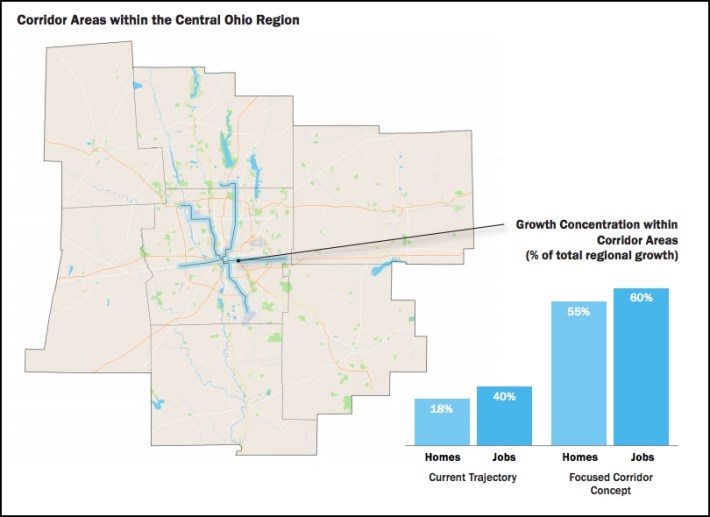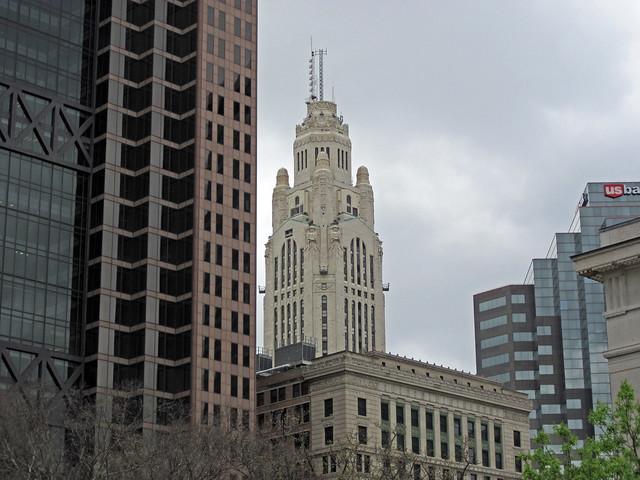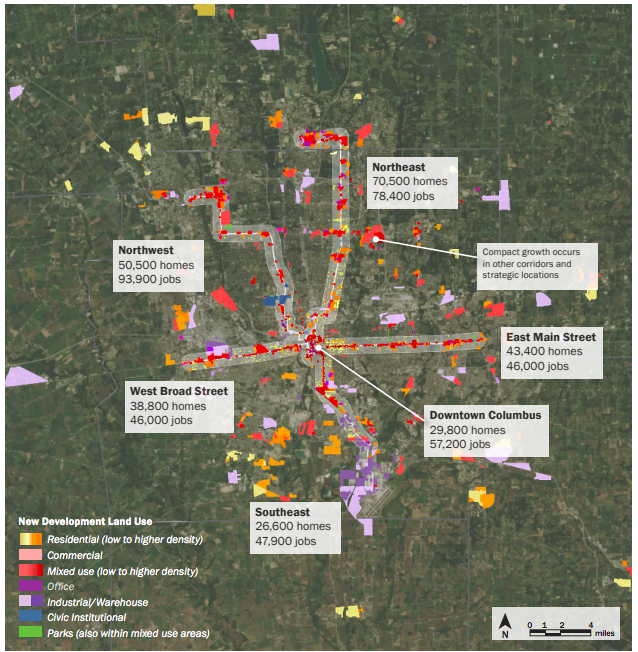The fast-growing city of Columbus has some choices to make about how it will house its next half million residents.
Will the 450,000 people that the city expects to add by 2050 live in sprawling locations where they must depend on a car for every trip — like most residents do now?
Or — as planners have proposed — will new residents be housed, instead, along corridors that offer strong walkability and transit accessibility?
These two visions for the future are being considered as part of a new planing process, Insight2050 [PDF].
The more ambitious of the two visions would concentrate more than half of the projected 450,000 new residents and 600,000 new jobs along five key corridors radiating from downtown in a hub-and-spoke pattern.
The plan does not specify any kind of transit for the five corridors, but cites high-quality bus-rapid transit and light rail as examples. That, in itself, would be a major improvement. Columbus currently doesn't have any rail-based transit — and its bus-based transit system, COTA, carries just 50,000 total rides a day.
But changing the development pattern could have enormous effects on the environment and residents' quality of life.
This more-compact development scenario envisioned by Insight2050 would save about 110 square miles of land around the metro area from sprawl, planners project, and would lead to about five times as many transit trips throughout the region. It also would reduce by about half the number of miles that Columbus-area households drive annually, saving the average family about $8,500 a year on transportation.
The plan would require major rezonings along the proposed corridors, including the redevelopment of thousands of acres for commercial and mixed-use, medium-density housing.
"These corridors can improve quality of life by expanding transportation options for residents; lowering costs for local infrastructure; generating higher revenues; increasing access to jobs and medical services; lowering household costs; and generally creating more inclusive communities," said Kerstin Carr, Director of Planning & Sustainability at Columbus's regional planning agency, MORPC.

The plan was created in partnership with the city of Columbus and regional planners at MORPC as well as a number of affected suburbs and private organizations. Those involved also anticipate big public savings.
"Through the Focused Corridor Concept, the Region stands to receive three times higher tax revenue per acre and spend $10 billion less in cumulative infrastructure costs compared to its current trajectory," said Carr.







